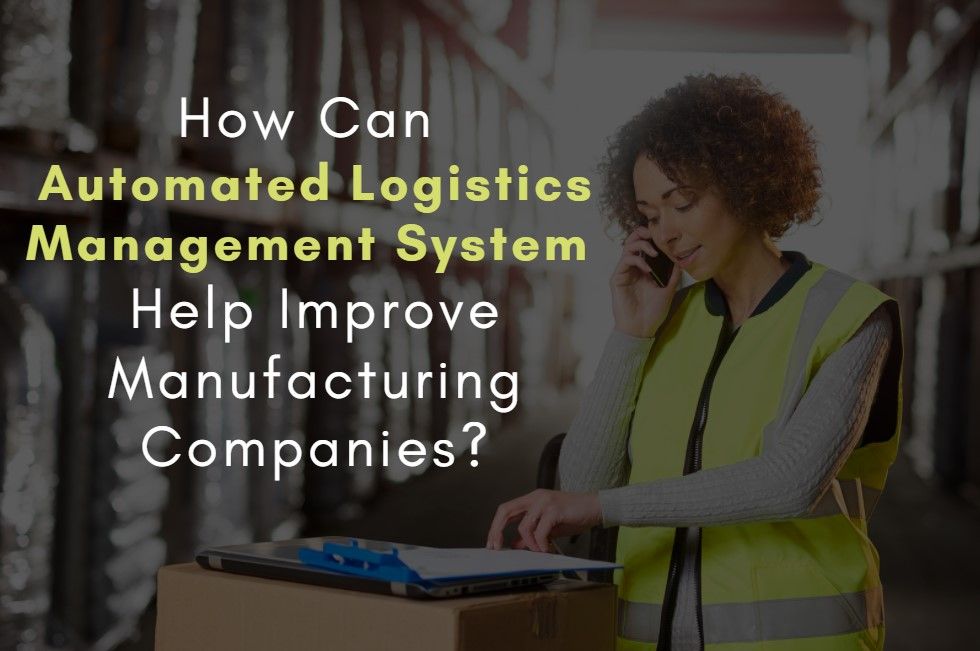
- December 9, 2021
- admin
- 0
Read Our Blog

Importance of Automated Logistics Management System in the Manufacturing Industry
COVID-19, a world pandemic, has posed a few challenges to almost all businesses across the world. For a few days, most of them are limping back to normalcy. If you are one such business owner and need strong support, you can rely on an automated logistics management system. It can help restore disrupted supply chains, change order volumes, and address transport issues with ease. A customized version can handle problems faced by an organization, irrespective of its origin or type.
In simple words, an automated logistics management system refers to the use of control systems, machinery, and software, which aid in enhancing operational efficiency. Generally, it applies to the different processes performed in the production unit, distribution centre and warehouse. The highlight of this system is that it involves minimal human intervention, thereby reducing errors and accidents.
What are the benefits of an automated logistics management system?
Picking up the right manufacturing resource planning solutions will help in improving the industry performance. The benefits will not be restricted to the production unit. It further assists in raw material acquiring, inventory management, and output. The key benefits of digitizing the manufacturing process are:
- Fitter decision making: Acquiring real-time data helps in better analysis and making the right decisions. Manufacturers will have the advantage and get a perspective of business opportunities. Easy access to this valuable data cannot be underestimated as it acts as indispensable guidance for improvements in all areas.
- Reducing errors: Automation helps integrate inventory management through the ERP system- fixed, current and goods available. Easy access to data related to customers/clients, fuel charges, and other critical information. The system will update all the details automatically, with no loss of data or eliminating inconsistencies.
- Great organizational control: Digitizing the manufacturing process and other procedures help with manufacturing transport logistics and others. It will provide the management with better control of every step and department. Installing the right software will help reduce the dependency on humans, but a complete replacement will not be ideal. It will allow including further innovations, which help in staying ahead of the competitors.
- Better customer service: The key to any business success is to grab maximum customer attention. Retaining loyal customers and getting in new customers will help in improving sales. Better manufacturing transport logistics and improved supply chain will aid in tracking movement of goods, digital accounting, transaction tracking, invoice payments, generation of automatic documents, custom specifications etc.
- Scalability and speed: a well-designed automated logistics management system allows customization for any business. It will aid in completing more orders in a shorter time and serving more customers efficiently; thus, increasing profits. If the manufacturer plans for renovation or scaling of business, the software can be tailor-made to suit the new scale. It will help in reducing dependency on humans and better performance. Thus, allowing them to stand out in the competition.
The future of any business is focused on increased automation. One should understand that the human factor cannot be replaced totally and is not necessary. The use of software for manufacturing resource planning and other critical processes will help in enhancing business performance. The key areas to include digitization are:
- Processing of goods
- Retrieval of goods
- Automatic dispatch processing
- Inventory management
- Accounting
- Tracking of orders and others
Most software vendors provide customized automated logistics management systems. Discussing with the professionals will aid in gaining access to the apt solution for the manufacturing unit.

